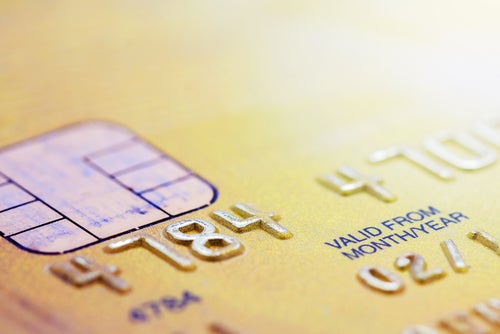Do you have any credit cards you rarely use? If so, it might be tempting to close the account and move on. After all, it’s just one less thing you need to keep track of on a regular basis.
Not so fast! There’s one very compelling reason to keep your card open, even if you don’t use it regularly or carry a balance. Keeping that card open can actually help your credit score.
One of the biggest factors that determines your credit score is your credit utilization, or how much of your available credit you have tied up in debt. If you close a credit card that you no longer use, you’re actually reducing your available credit and you end up using up a greater percentage in debt. Credit utilization is second only to payment history in the FICO credit scoring model.
Additionally, closing a very old account could cause the average age of your accounts to decline – the older an account, the more it helps your credit score.
The downside to this practice? If you have a card that you use infrequently – or not at all – you can be more susceptible to credit card fraud, as your lack of activity may lead you to pay much less attention to that account. And just because you don’t use your card anymore doesn’t mean you’re safe from fraud. Any vendor at which you used your card in the past could be vulnerable to a security breach, and if thieves had access to your credit card information in the past, they can still use that information at any time.
So what best practices can you use to keep your unused credit cards open and guarded against illegal activity?
Keep it Safe
If you are no longer using a credit card for regular purchases, there’s little reason to carry it around with you, increasing the chances of it being lost or stolen. If you have a safe spot at home – preferably, in a locked safe or an extremely secure location that you’ll remember – keep your card there. If your wallet or purse is lost or stolen, it’s one less account you will have to worry about being compromised.
Proactively Monitor Your Account
While you probably hoped to reduce the amount of accounts you need to track, monitoring an inactive credit card account should not be too much of a headache. The simplest way to prevent credit card fraud is to monitor the charges and activity – if you aren’t using your card on a regular basis, any fraudulent activity will immediately stick out like a sore thumb.
If you don’t already have it, setup an online account with your credit card provider so that you can quickly review your card’s activity. Then, set yourself a reminder to check the account on at least a monthly basis – maybe at the same time you pay your other bills – to make sure there is no suspicious activity recorded.
Many credit card companies offer additional monitoring options as well. For instance, some credit card companies will issue you an alert for irregular activity or purchases made over a specified amount.
With online monitoring and alerts, you can quickly catch any unusual activity before more damage is done.
Immediately Report Unusual Activity
If you suspect your credit card has been fraudulently used – or if your card has been lost or stolen – you should immediately contact your credit card company. If you quickly catch the activity, you can prevent further fraud and the charges can potentially be refunded or cancelled. Under federal law, you cannot be held responsible for more than $50 of unauthorized charges, and if you catch the activity quickly enough, you can potentially avoid even that responsibility.
In Closing
Keeping an inactive credit card open is a great way to help maintain a good credit score. The risk for fraud occurs when you stop paying attention to the account. Through continuous monitoring, fraud alerts, and keeping your card secure, you can help guard against fraud. By being vigilant and immediately reporting any unauthorized activity, you can protect yourself against further damage should you become a victim of fraud.
Old credit cards are extremely beneficial to your credit score – so if you can keep a watchful eye on them, they are absolutely worth keeping open.
Questions about credit repair?
Chat with an expert: 1-800-255-0263






